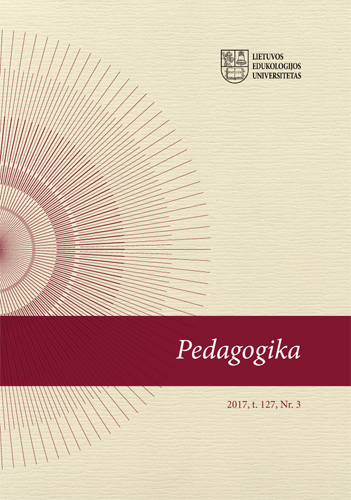Pamokos efektyvumo paradoksai: netikėti empiriniai radiniai apie namų darbų kiekį ir mokytojo reiklumą
Lessons Efficiency Paradox: The Unexpected Empirical Findings about the Amount of Homework and the Teacher’s Strictness
Author(s): Gediminas Merkys, Daiva BubelienėSubject(s): Education, Evaluation research
Published by: Vytauto Didžiojo Universitetas
Keywords: lesson; effectiveness and quality of the lesson; homework; didactic requirements;
Summary/Abstract: In the article a newly created questionnaire intended for older schoolchildren – “evaluate the teacher and his lessons” is introduced. The theoretical and practical context of the instrument based on 87 primary questions is named, the dimensional structure and metrological quality of the formed integrated scales and sub-scales is presented. The scales and sub-scales were formed following the classical test theory, combining logical and factorial validation. The secondary sub-scale factorization has indicated that it is expedient to distinguish between two integrated lesson dimensions (scales). The first integrated scale reflects the quality of social relations and teacher-centered orientation. The second scale reflects the management and didactics of the educational process. High correlation between the evaluations of integrated scales (r = 0.86) indicates that a generalized integrated index of evaluation of the teacher and his lesson can be derived by aggregating even 81 primary variables defining the most various aspects of the lesson. In the article the basis of statistic norming of the questionnaire possessed at present is described: Nschool children = 4024 and Nteachers = 200 which encompasses schools of different types from various regions of the country. The wide coverage of the content of created questionnaire, quite good quality of the scales opens good opportunities for its application in both the practice of schools evaluation and research.
Journal: Pedagogika
- Issue Year: 127/2017
- Issue No: 3
- Page Range: 104-118
- Page Count: 15
- Language: Lithuanian

